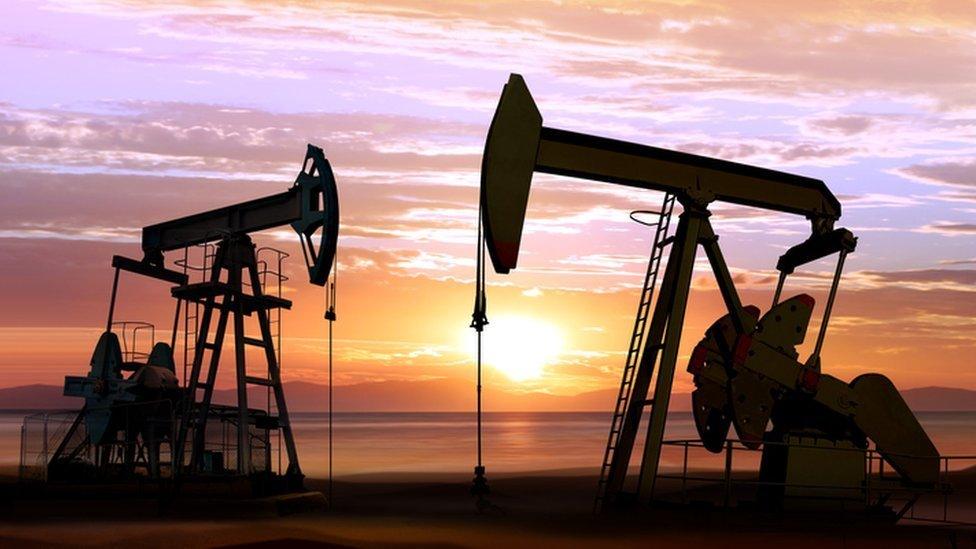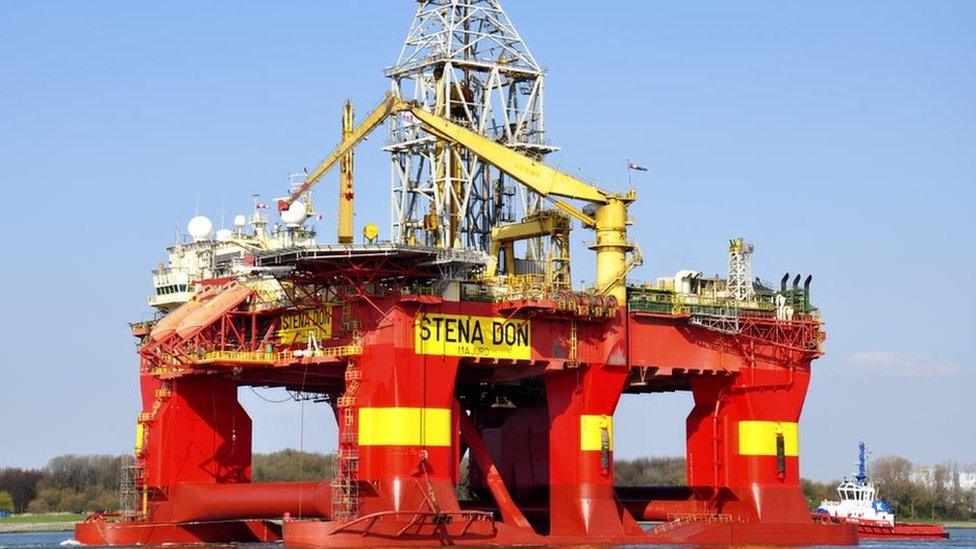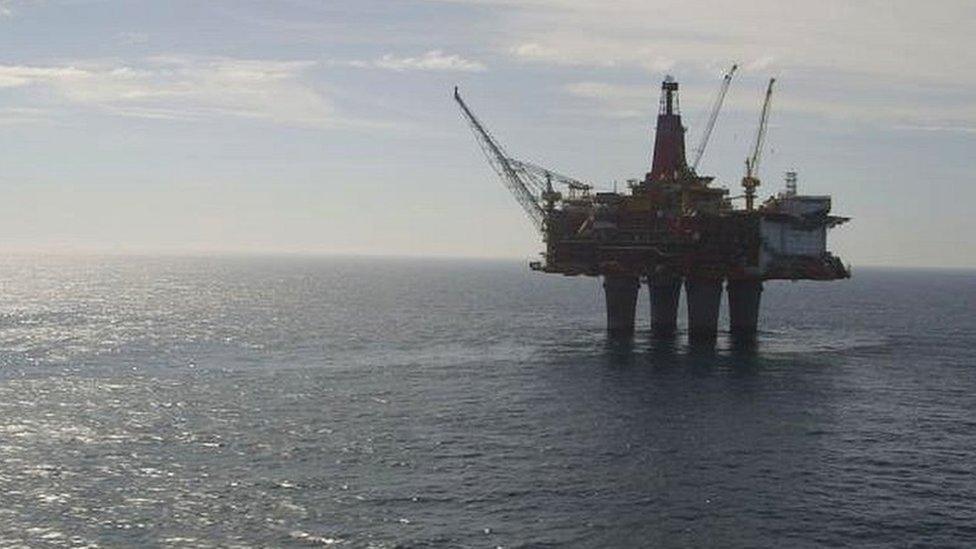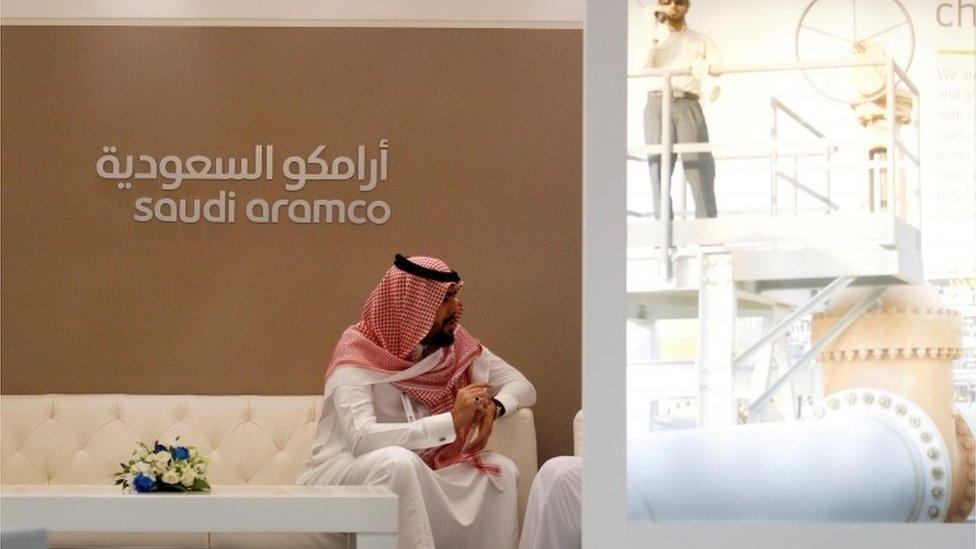Oil price jumps as Opec keeps output steady
- Published

Oil prices have hit a four-year high of over $81 (£62) a barrel after Saudi Arabia and Russia rejected calls by Donald Trump to increase production.
Brent crude hit its highest level since November 2014 at $81.16 a barrel, up 3% on the day.
Saudi Arabia leads the Opec oil cartel, while Russia is the biggest oil producer outside the group.
They met in Algiers on Sunday to discuss global supply levels and US sanctions on Iran.
The meeting ended with no formal agreement on any additional supply boost.
Saudi energy minister Khalid al-Falih said at a press conference in Algiers that he did not "influence prices".
Opec and other producers had discussed raising output by 500,000 barrels a day, Reuters reported.
Sales of Iranian crude have fallen as buyers remain wary of penalties from sanctions due to take effect from November.
Those fears have sent crude oil prices higher, with commodity traders Trafigura and Mercuria predicting prices could rise to more than $100 a barrel by early next year.
But Ann-Louise Hittle, vice president of energy consultancy firm Wood Mackenzie, said the price rise was "an overreaction in the market."
In a tweet last week, US president Donald Trump said that Opec "must get prices down now!" by raising global output.
"We protect the countries of the Middle East," added Mr Trump. "They would not be safe for very long without us, and yet they continue to push for higher and higher oil prices! We will remember."
Iranian oil minister Bijan Zanganeh said on Sunday that Mr Trump's tweet "was the biggest insult to Washington's allies in the Middle East".
Last year, Opec and other oil-producing nations including Russia said they would extend a deal, first agreed in 2016, to cut production to help support oil prices after they fell below $50 a barrel. This deal was upheld at Sunday's meeting.
"We expect that those Opec countries with available spare capacity, led by Saudi Arabia, will increase output but not completely offset the drop in Iranian barrels," said Edward Bell, commodity analyst at Emirates NBD bank.
"Were they do so the oil market would be even more uncomfortably tight than we forecast for 2019 as spare capacity is eroded," Mr Bell added.
US light crude was $1.72 higher at $72.50 a barrel.
- Published24 September 2018

- Published11 September 2018

- Published23 August 2018
